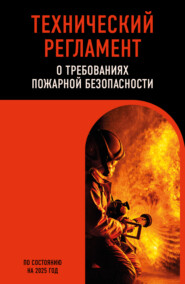По всем вопросам обращайтесь на: info@litportal.ru
(©) 2003-2025.
✖
Stories by English Authors: Africa (Selected by Scribners)
Настройки чтения
Размер шрифта
Высота строк
Поля
“‘Where are the other oxen?’ I asked.
“‘Koos!’ he said, ‘Koos! (chief) the other oxen have gone away. I turned my back for a minute, and when I looked round again they were all gone except Kaptein, here, who was rubbing his back against a tree.’
“‘You mean that you have been asleep, and let them stray, you villain. I will rub your back against a stick,’ I answered, feeling very angry, for it was not a pleasant prospect to be stuck up in that fever-trap for a week or so while we were hunting for the oxen. ‘Off you go, and you too, Tom, and mind you don’t come back till you have found them. They have trekked back along the Middelburg Road, and are a dozen miles off by now, I’ll be bound. Now, no words; go, both of you.’
“Tom, the driver, swore and caught the lad a hearty kick, which he richly deserved, and then, having tied old Kaptein up to the disselboom with a riem, they took their assegais and sticks, and started. I would have gone too, only I knew that somebody must look after the waggon, and I did not like to leave either of the boys with it at night. I was in a very bad temper, indeed, although I was pretty well used to these sort of occurrences, and soothed myself by taking a rifle and going to kill something. For a couple of hours I poked about without seeing anything that I could get a shot at, but at last, just as I was again within seventy yards of the waggon, I put up an old Impala ram from behind a mimosa-thorn. He ran straight for the waggon, and it was not till he was passing within a few feet of it that I could get a decent shot at him. Then I pulled, and caught him half-way down the spine; over he went, dead as a door-nail, and a pretty shot it was, though I ought not to say it. This little incident put me into rather a better temper, especially as the buck had rolled right against the after part of the waggon, so I had only to gut him, fix a riem round his legs, and haul him up. By the time I had done this the sun was down, and the full moon was up, and a beautiful moon it was. And then there came that wonderful hush which sometimes falls over the African bush in the early hours of the night. No beast was moving, and no bird called. Not a breath of air stirred the quiet trees, and the shadows did not even quiver, they only grew. It was very oppressive and very lonely, for there was not a sign of the cattle or the boys. I was quite thankful for the society of old Kaptein, who was lying down contentedly against the disselboom, chewing the cud with a good conscience.
“Presently, however, Kaptein began to get restless. First he snorted, then he got up and snorted again. I could not make it out, so like a fool I got down off the waggon-box to have a look round, thinking it might be the lost oxen coming.
“Next instant I regretted it, for all of a sudden I heard a roar and saw something yellow flash past me and light on poor Kaptein. Then came a bellow of agony from the ox, and a crunch as the lion put his teeth through the poor brute’s neck, and I began to understand what had happened. My rifle was in the waggon, and my first thought was to get hold of it, and I turned and made a bolt for it. I got my foot on the wheel and flung my body forward on to the waggon, and there I stopped as if I were frozen, and no wonder, for as I was about to spring up I heard the lion behind me, and next second I felt the brute, ay, as plainly as I can feel this table. I felt him, I say, sniffing at my left leg that was hanging down.
“My word! I did feel queer; I don’t think that I ever felt so queer before. I dared not move for the life of me, and the odd thing was that I seemed to lose power over my leg, which developed an insane sort of inclination to kick out of its own mere motion – just as hysterical people want to laugh when they ought to be particularly solemn. Well, the lion sniffed and sniffed, beginning at my ankle and slowly nosing away up to my thigh. I thought that he was going to get hold then, but he did not. He only growled softly, and went back to the ox. Shifting my head a little I got a full view of him. He was about the biggest lion I ever saw, – and I have seen a great many, and he had a most tremendous black mane. What his teeth were like you can see – look there, pretty big ones, ain’t they? Altogether he was a magnificent animal, and as I lay sprawling on the fore tongue of the waggon, it occurred to me that he would look uncommonly well in a cage. He stood there by the carcass of poor Kaptein, and deliberately disembowelled him as neatly as a butcher could have done. All this while I dared not move, for he kept lifting his head and keeping an eye on me as he licked his bloody chops. When he had cleaned Kaptein out he opened his mouth and roared, and I am not exaggerating when I say that the sound shook the waggon. Instantly there came back an answering roar.
“‘Heavens!’ I thought, ‘there is his mate.’
“Hardly was the thought out of my head when I caught sight in the moonlight of the lioness bounding along through the long grass, and after her a couple of cubs about the size of mastiffs. She stopped within a few feet of my head, and stood, and waved her tail, and fixed me with her glowing yellow eyes; but just as I thought that it was all over she turned and began to feed on Kaptein, and so did the cubs. There were the four of them within eight feet of me, growling and quarrelling, rending and tearing, and crunching poor Kaptein’s bones; and there I lay shaking with terror, and the cold perspiration pouring out of me, feeling like another Daniel come to judgment in a new sense of the phrase. Presently the cubs had eaten their fill, and began to get restless. One went round to the back of the waggon and pulled at the Impala buck that hung there, and the other came round my way and commenced the sniffing game at my leg. Indeed, he did more than that, for, my trouser being hitched up a little, he began to lick the bare skin with his rough tongue. The more he licked the more he liked it, to judge from his increased vigour and the loud purring noise he made. Then I knew that the end had come, for in another second his file-like tongue would have rasped through the skin of my leg – which was luckily pretty tough – and have drawn the blood, and then there would be no chance for me. So I just lay there and thought of my sins, and prayed to the Almighty, and thought that, after all, life was a very enjoyable thing.
“And then all of a sudden I heard a crashing of bushes and the shouting and whistling of men, and there were the two boys coming back with the cattle, which they had found trekking along all together. The lions lifted their heads and listened, then without a sound bounded off – and I fainted.
“The lions came back no more that night, and by the next morning my nerves had got pretty straight again; but I was full of wrath when I thought of all that I had gone through at the hands, or rather noses, of those four lions, and of the fate of my after-ox Kaptein. He was a splendid ox, and I was very fond of him. So wroth was I that, like a fool, I determined to attack the whole family of them. It was worthy of a greenhorn out on his first hunting-trip; but I did it nevertheless. Accordingly after breakfast, having rubbed some oil upon my leg, which was very sore from the cub’s tongue, I took the driver, Tom, who did not half like the job, and having armed myself with an ordinary double No. 12 smooth-bore, the first breech-loader I ever had, I started. I took the smooth-bore because it shot a bullet very well; and my experience has been that a round ball from a smooth-bore is quite as effective against a lion as an express bullet. The lion is soft, and not a difficult animal to finish if you hit him anywhere in the body. A buck takes far more killing.
“Well, I started, and the first thing I set to work to do was to try to make out whereabouts the brutes lay up for the day. About three hundred yards from the waggon was the crest of a rise covered with single mimosa-trees, dotted about in a park-like fashion, and beyond this was a stretch of open plain running down to a dry pan, or water-hole, which covered about an acre of ground, and was densely clothed with reeds, now in the sear and yellow leaf. From the farther edge of this pan the ground sloped up again to a great cleft, or nullah, which had been cut out by the action of the water, and was pretty thickly sprinkled with bush, among which grew some large trees, I forget of what sort.
“It at once struck me that the dry pan would be a likely place to find my friends in, as there is nothing a lion is fonder of than lying up in reeds, through which he can see things without being seen himself. Accordingly thither I went and prospected. Before I had got half-way round the pan I found the remains of a blue vilder-beeste that had evidently been killed within the last three or four days and partially devoured by lions; and from other indications about I was soon assured that if the family were not in the pan that day they spent a good deal of their spare time there. But if there, the question was how to get them out; for it was clearly impossible to think of going in after them unless one was quite determined to commit suicide. Now there was a strong wind blowing from the direction of the waggon, across the reedy pan toward the bush-clad kloof or donga, and this first gave me the idea of firing the reeds, which, as I think I told you, were pretty dry. Accordingly Tom took some matches and began starting little fires to the left, and I did the same to the right. But the reeds were still green at the bottom, and we should never have got them well alight had it not been for the wind, which grew stronger and stronger as the sun climbed higher, and forced the fire into them. At last, after half an hour’s trouble, the flames got a hold, and began to spread out like a fan, whereupon I went round to the farther side of the pan to wait for the lions, standing well out in the open, as we stood at the copse to-day where you shot the woodcock. It was a rather risky thing to do, but I used to be so sure of my shooting in those days that I did not so much mind the risk. Scarcely had I got round when I heard the reeds parting before the onward rush of some animal. ‘Now for it,’ said I. On it came. I could see that it was yellow, and prepared for action, when instead of a lion out bounded a beautiful rietbok which had been lying in the shelter of the pan. It must, by the way, have been a rietbok of a peculiarly confiding nature to lay itself down with the lion, like the lamb of prophecy, but I suppose the reeds were thick, and that it kept a long way off.
“Well, I let the rietbok go, and it went like the wind, and kept my eyes fixed upon the reeds. The fire was burning like a furnace now; the flames crackling and roaring as they bit into the reeds, sending spouts of fire twenty feet and more into the air, and making the hot air dance above it in a way that was perfectly dazzling. But the reeds were still half green, and created an enormous quantity of smoke, which came rolling toward me like a curtain, lying very low on account of the wind. Presently, above the crackling of the fire, I heard a startled roar, then another and another. So the lions were at home.
“I was beginning to get excited now, for, as you fellows know, there is nothing in experience to warm up your nerves like a lion at close quarters, unless it is a wounded buffalo; and I got still more so when I made out through the smoke that the lions were all moving about on the extreme edge of the reeds. Occasionally they would pop their heads out like rabbits from a burrow, and then, catching sight of me standing about fifty yards out, draw them back again. I knew that it must be getting pretty warm behind them, and that they could not keep the game up for long; and I was not mistaken, for suddenly all four of them broke cover together, the old black-maned lion leading by a few yards. I never saw a more splendid sight in all my hunting experience than those four lions bounding across the veldt, overshadowed by the dense pall of smoke and backed by the fiery furnace of the burning reeds.
“I reckoned that they would pass, on their road to the bushy kloof, within about five and twenty yards of me; so, taking a long breath, I got my gun well on to the lion’s shoulder – the black-maned one – so as to allow for an inch or two of motion, and catch him through the heart. I was on, dead on, and my finger was just beginning to tighten on the trigger, when suddenly I went blind – a bit of reed-ash had drifted into my right eye. I danced and rubbed, and succeeded in clearing it more or less just in time to see the tail of the last lion vanishing round the bushes up the kloof.
“If ever a man was mad I was that man. It was too bad; and such a shot in the open, too! However, I was not going to be beaten, so I just turned and marched for the kloof. Tom, the driver, begged and implored me not to go; but though as a general rule I never pretend to be very brave (which I am not), I was determined that I would either kill those lions or they should kill me. So I told Tom that he need not come unless he liked, but I was going; and being a plucky fellow, a Swazi by birth, he shrugged his shoulders, muttered that I was mad or bewitched, and followed doggedly in my tracks.
“We soon got to the kloof, which was about three hundred yards in length and but sparsely wooded, and then the real fun began. There might be a lion behind every bush – there certainly were four lions somewhere; the delicate question was, where. I peeped and poked and looked in every possible direction, with my heart in my mouth, and was at last rewarded by catching a glimpse of something yellow moving behind a bush. At the same moment, from another bush opposite me out burst one of the cubs and galloped back toward the burned-out pan. I whipped round and let drive a snap-shot that tipped him head over heels, breaking his back within two inches of the root of the tail, and there he lay helpless but glaring. Tom afterward killed him with his assegai. I opened the breech of the gun and hurriedly pulled out the old case, which, to judge from what ensued, must, I suppose, have burst and left a portion of its fabric sticking to the barrel. At any rate, when I tried to get in the new case it would only enter half-way; and – would you believe it? – this was the moment that the lioness, attracted no doubt by the outcry of her cub, chose to put in an appearance. There she stood, twenty paces or so from me, lashing her tail and looking just as wicked as it is possible to conceive. Slowly I stepped backward, trying to push in the new case, and as I did so she moved on in little runs, dropping down after each run. The danger was imminent, and the case would not go in. At the moment I oddly enough thought of the cartridge-maker, whose name I will not mention, and earnestly hoped that if the lion got me some condign punishment would overtake him. It would not go in, so I tried to pull it out. It would not come out either, and my gun was useless if I could not shut it to use the other barrel. I might as well have had no gun. Meanwhile I was walking backward, keeping my eye on the lioness, who was creeping forward on her belly without a sound, but lashing her tail and keeping her eye on me; and in it I saw that she was coming in a few seconds more. I dashed my wrist and the palm of my hand against the brass rim of the cartridge till the blood poured from them – look, there are the scars of it to this day!”
Here Quatermain held up his right hand to the light and showed us four or five white cicatrices just where the wrist is set into the hand.
“But it was not of the slightest use,” he went on; “the cartridge would not move. I only hope that no other man will ever be put in such an awful position. The lioness gathered herself together, and I gave myself up for lost, when suddenly Tom shouted out from somewhere in my rear:
“‘You are walking on to the wounded cub; turn to the right.’
“I had the sense, dazed as I was, to take the hint, and slewing round at right angles, but still keeping my eyes on the lioness, I continued my backward walk.
“To my intense relief, with a low growl she straightened herself, turned, and bounded off farther up the kloof.
“‘Come on, inkoos,’ said Tom, ‘let’s get back to the waggon.’
“‘All right, Tom,’ I answered. ‘I will when I have killed those three other lions,’ for by this time I was bent on shooting them as I never remember being bent on anything before or since. ‘You can go if you like, or you can get up a tree.’
“He considered the position a little, and then he very wisely got up a tree. I wish that I had done the same.
“Meanwhile I had found my knife, which had an extractor in it, and succeeded after some difficulty in hauling out the case which had so nearly been the cause of my death, and removing the obstruction in the barrel. It was very little thicker than a postage-stamp; certainly not thicker than a piece of writing-paper. This done, I loaded the gun, bound a handkerchief round my wrist and hand to staunch the flowing of the blood, and started on again.
“I had noticed that the lioness went into a thick green bush, or rather cluster of bushes, growing near the water; for there was a little stream running down the kloof, about fifty yards higher up and for this I made. When I got there, however, I could see nothing, so I took up a big stone and threw it into the bushes. I believe that it hit the other cub, for out it came with a rush, giving me a broadside shot, of which I promptly availed myself, knocking it over dead. Out, too, came the lioness like a flash of light, but quick as she went I managed to put the other bullet into her ribs, so that she rolled right over three times like a shot rabbit. I instantly got two more cartridges into the gun, and as I did so the lioness rose again and came crawling toward me on her fore paws, roaring and groaning, and with such an expression of diabolical fury on her countenance as I have not often seen. I shot her again through the chest, and she fell over on to her side quite dead.
“That was the first and last time that I ever killed a brace of lions right and left, and, what is more, I never heard of anybody else doing it. Naturally I was considerably pleased with myself, and having again loaded up, I went on to look for the black-maned beauty who had killed Kaptein. Slowly, and with the greatest care, I proceeded up the kloof, searching every bush and tuft of grass as I went. It was wonderfully exciting work, for I never was sure from one moment to another but that he would be on me. I took comfort, however, from the reflection that a lion rarely attacks a man, – rarely, I say; sometimes he does, as you will see, – unless he is cornered or wounded. I must have been nearly an hour hunting after that lion. Once I thought I saw something move in a clump of tambouki grass, but I could not be sure, and when I trod out the grass I could not find him.
“At last I worked up to the head of the kloof, which made a cul-de-sac. It was formed of a wall of rock about fifty feet high. Down this rock trickled a little waterfall, and in front of it, some seventy feet from its face, was a great piled-up mass of boulders, in the crevices and on the top of which grew ferns, grasses, and stunted bushes. This mass was about twenty-five feet high. The sides of the kloof here were also very steep. Well, I came to the top of the nullah and looked all round. No signs of the lion. Evidently I had either overlooked him farther down or he had escaped right away. It was very vexatious; but still three lions were not a bad bag for one gun before dinner, and I was fain to be content. Accordingly I departed back again, making my way round the isolated pillar of boulders, beginning to feel, as I did so, that I was pretty well done up with excitement and fatigue, and should be more so before I had skinned those three lions. When I had got, as nearly as I could judge, about eighteen yards past the pillar or mass of boulders, I turned to have another look round. I have a pretty sharp eye, but I could see nothing at all.
“Then, on a sudden, I saw something sufficiently alarming. On the top of the mass of boulders, opposite to me, standing out clear against the rock beyond, was the huge black-maned lion. He had been crouching there, and now arose as though by magic. There he stood lashing his tail, just like a living reproduction of the animal on the gateway of Northumberland House that I have seen a picture of. But he did not stand long. Before I could fire – before I could do more than get the gun to my shoulder – he sprang straight up and out from the rock, and driven by the impetus of that one mighty bound came hurtling through the air toward me.
“Heavens! how grand he looked, and how awful! High into the air he flew, describing a great arch. Just as he touched the highest point of his spring I fired. I did not dare to wait, for I saw that he would clear the whole space and land right upon me. Without a sight, almost without aim, I fired, as one would fire a snap-shot at a snipe. The bullet told, for I distinctly heard its thud above the rushing sound caused by the passage of the lion through the air. Next second I was swept to the ground (luckily I fell into a low, creeper-clad bush, which broke the shock), and the lion was on the top of me, and the next those great white teeth of his had met in my thigh – I heard them grate against the bone. I yelled out in agony, for I did not feel in the least benumbed and happy, like Dr. Livingstone, – whom, by the way, I knew very well, – and gave myself up for dead. But suddenly, at that moment, the lion’s grip on my thigh loosened, and he stood over me, swaying to and fro, his huge mouth, from which the blood was gushing, wide opened. Then he roared, and the sound shook the rocks.
“To and fro he swung, and then the great head dropped on me, knocking all the breath from my body, and he was dead. My bullet had entered in the centre of his chest and passed out on the right side of the spine about half way down the back.
“The pain of my wound kept me from fainting, and as soon as I got my breath I managed to drag myself from under him. Thank heavens, his great teeth had not crushed my thigh-bone; but I was losing a great deal of blood, and had it not been for the timely arrival of Tom, with whose aid I got the handkerchief from my wrist and tied it round my leg, twisting it tight with a stick, I think that I should have bled to death.
“Well, it was a just reward for my folly in trying to tackle a family of lions single-handed. The odds were too long. I have been lame ever since, and shall be to my dying day; in the month of March the wound always troubles me a great deal, and every three years it breaks out raw. I need scarcely add that I never traded the lot of ivory at Sikukuni’s. Another man got it – a German – and made five hundred pounds out of it after paying expenses. I spent the next month on the broad of my back, and was a cripple for six months after that. And now I’ve told you the yarn, so I will have a drop of Hollands and go to bed.”
KING BEMBA’S POINT, A WEST AFRICAN STORY, By J. Landers
We were for the most part a queer lot out on that desolate southwest African coast, in charge of the various trading stations that were scattered along the coast, from the Gaboon River, past the mouth of the mighty Congo, to the Portuguese city of St. Paul de Loanda. A mixture of all sorts, especially bad sorts: broken-down clerks, men who could not succeed anywhere else, sailors, youths, and some whose characters would not have borne any investigation; and we very nearly all drank hard, and those who didn’t drink hard took more than was good for them.
I don’t know exactly what induced me to go out there. I was young for one thing, the country was unknown, the berth was vacant, and the conditions of it easy.
Imagine a high rocky point or headland, stretching out sideways into the sea, and at its base a small river winding into a country that was seemingly a blank in regard to inhabitants or cultivation; a land continuing for miles and miles, as far as the eye could see, one expanse of long yellow grass, dotted here and there with groups of bastard palms. In front of the headland rolled the lonely South Atlantic; and, as if such conditions were not dispiriting enough to existence upon the Point, there was yet another feature which at times gave the place a still more ghastly look. A long way off the shore, the heaving surface of the ocean began, in anything like bad weather, to break upon the shoals of the coast. Viewed from the top of the rock, the sea at such times looked, for at least two miles out, as if it were scored over with lines of white foam; but lower down, near the beach, each roller could be distinctly seen, and each roller had a curve of many feet, and was an enormous mass of water that hurled itself shoreward until it curled and broke.
When I first arrived on the Point there was, I may say, only one house upon it, and that belonged to Messrs. Flint Brothers, of Liverpool. It was occupied by one solitary man named Jackson; he had had an assistant, but the assistant had died of fever, and I was sent to replace him. Jackson was a man of fifty at least, who had been a sailor before he had become an African trader. His face bore testimony to the winds and weather it had encountered, and wore habitually a grave, if not melancholy, expression. He was rough but kind to me, and though strict was just, which was no common feature in an old African hand to one who had just arrived on the coast.
He kept the factory – we called all houses on the coast factories – as neat and clean as if it had been a ship. He had the floor of the portion we dwelt in holystoned every week; and numberless little racks and shelves were fitted up all over the house. The outside walls glittered with paint, and the yard was swept clean every morning; and every Sunday, at eight o’clock and sunset, the ensign was hoisted and lowered, and an old cannon fired at the word of command. Order and rule were with Jackson observed from habit, and were strictly enforced by him on all the natives employed in the factory.
Although I have said the country looked as if uninhabited, there were numerous villages hidden away in the long grass and brushwood, invisible at a distance, being huts of thatch or mud, and not so high as the grass among which they were placed. From these villages came most of our servants, and also the middlemen, who acted as brokers between us, the white men, and the negroes who brought ivory and gum and india-rubber from the far interior for sale. Our trade was principally in ivory, and when an unusually large number of elephants’ tusks arrived upon the Point for sale, it would be crowded with Bushmen, strange and uncouth, and hideously ugly, and armed, and then we would be very busy; for sometimes as many as two hundred tusks would be brought to us at the same time, and each of these had to be bargained for and paid for by exchange of cotton cloths, guns, knives, powder, and a host of small wares.
For some time after my arrival our factory, along with the others on the coast belonging to Messrs. Flint Brothers, was very well supplied by them with goods for the trade; but by degrees their shipments became less frequent, and small when they did come. In spite of repeated letters we could gain no reason from the firm for this fact, nor could the other factories, and gradually we found ourselves with an empty storehouse, and nearly all our goods gone. Then followed a weary interval, during which we had nothing whatever to do, and day succeeded day through the long hot season. It was now that I began to feel that Jackson had become of late more silent and reserved with me than ever he had been. I noticed, too, that he had contracted a habit of wandering out to the extreme end of the Point, where he would sit for hours gazing upon the ocean before him. In addition to this, he grew morose and uncertain in his temper toward the natives, and sometimes he would fall asleep in the evenings on a sofa, and talk to himself at such a rate while asleep that I would grow frightened and wake him, when he would stare about him for a little until he gathered consciousness, and then he would stagger off to bed to fall asleep again almost immediately. Also, his hands trembled much, and he began to lose flesh. All this troubled me, for his own sake as well as my own, and I resolved to ask him to see the doctor of the next mail-steamer that came. With this idea I went one day to the end of the Point, and found him in his usual attitude, seated on the long grass, looking seaward. He did not hear me approach, and when I spoke he started to his feet, and demanded fiercely why I disturbed him. I replied, as mildly as I could, for I was rather afraid of the glittering look that was in his eyes, that I wished to ask him if he did not feel ill.
He regarded me with a steady but softened glance for a little, and then said:
“My lad, I thank you for your trouble; but I want no doctor. Do you think I’m looking ill?”
“Indeed you are,” I answered, “ill and thin; and, do you know, I hear you talk to yourself in your sleep nearly every night.”
“What do I say?” he asked eagerly.
“That I cannot tell,” I replied. “It is all rambling talk; the same things over and over again, and nearly all about one person – Lucy.”
“Boy!” he cried out, as if in pain, or as if something had touched him to the quick, “sit you down, and I’ll tell you why I think of her – she was my wife.”
He moved nearer to the edge of the cliff, and we sat down, almost over the restless sea beneath us.

















